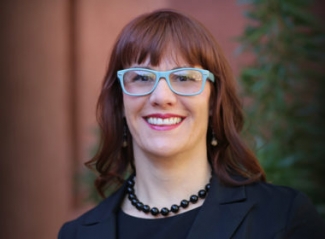Photo credit: Getty/AlexRaths

This past July, the House of Representatives passed the Helping Families in Mental Health Crisis Act (H.R. 2646), and the bill is helping to address the mental health crisis in the U.S.--but unfortunately, it doesn’t go far enough. While the bill will provide much-needed hospital beds for mental health patients seeking limited hospitalization, along with other necessary resources and funds for treatment centers, true mental healthcare reform in the U.S. will only occur once primary care medical teams include behavioral health specialists.
Roughly 10 million Americans will experience a serious mental health issue in any given year, according to the National Alliance on Mental Illness, but despite that concern, from 2009–2012, many states slashed their budgets for mental health services by $5 billion total, as USA Today has reported. During that time, states also removed 4,500 psychiatric hospital beds from public institutions, or roughly 10 percent of total public psychiatric bed, the USA Today article adds.
Further complicating matters, most communities in the U.S. lack dedicated mental health treatment centers or professionals. More than half of the counties in the U.S. don’t have access to practicing psychologists, psychiatrists or social workers, and for one-third of mental health patients seeking treatment or aid, primary care is their sole resource, according to the American Hospital Association.
H.R. 2646 is a step in the right direction, as it will allocate much-needed resources to the mentally unwell. The bill will help to provide some of the 100,000 or so psychiatric beds still needed by primary care and other treatment centers throughout the U.S., as NBC News reports, and it will provide funds for essential training for health professionals in assisted outpatient treatment, telepsychiatry and primary care. Funds will be allocated for mental health training for the Department of Justice as well as first responders.
However, in order to alleviate the national mental health crisis, the nature of primary care treatment in the U.S. needs to evolve
Primary care professionals provide much of the mental health treatment in the nation, but physicians often lack the training or the behavioral health education needed to properly diagnose mental health disorders.
In the primary care setting, many mental health illnesses (possibly up to half) are missed, according to The Bazelon Center for Mental Health Law. Additionally, primary care physicians sometimes fail to refer patients to mental health specialists. In one study featuring 298 standardized patient visits, only 36 percent ended up with a necessary mental health referral.
Worries about liability are often cited as primary reasons for the failure to properly screen patients for mental health illnesses. If they find illness, they are expected to refer to a specialist; however, physicians frequently experience difficulty establishing referral relationships with behavioral health providers. While primary care providers coordinate referrals to other specialists, such as cardiologists, endocrinologists and dermatologists, mental health referrals are rarely coordinated by the primary care team, resulting in a dismal percentage of patient follow through to counseling on a referral by a physician.
Physicians, therefore, often end up relying heavily on prescribing psychotropic medications to treat depression, anxiety and panic when patients ask for help. It’s estimated that non-psychiatric physicians prescribe 80 percent of these medications, as noted in a paper from the Cummings Institute.
Treating mental health illnesses in primary care settings may become more effective on a nationwide basis if primary care physicians opt to bring behavioral health specialists into the screening, assessment and treatment planning process. With a behavioral health specialist on the team, the physician may prescribe fewer psychotropic medications and instead create a blended treatment plan that incorporates therapy and medication.
H.R. 2646 addresses some of the barriers to integrating behavioral health into primary care by removing the same-day billing prohibition and inpatient restrictions under Medicaid. However, financial incentives to integrating care, such as reimbursement difficulties with behavioral health billing codes, are still largely cited as barriers to establishing integrated practices by primary clinicians.
While H.R. 2646 will help to increase mental health treatment efficiency in the U.S., health plans and provider organizations, primary care physicians and behavioral health providers must develop collaborative relationships to fully address the nation’s larger mental health needs.
Professor Cara M. English, DBH, is the director of the Cummings Graduate Institute for Behavioral Health Studies and an expert in behavioral and mental health issues.